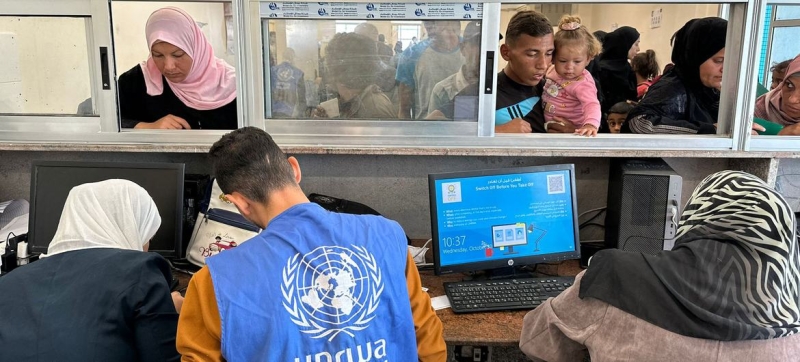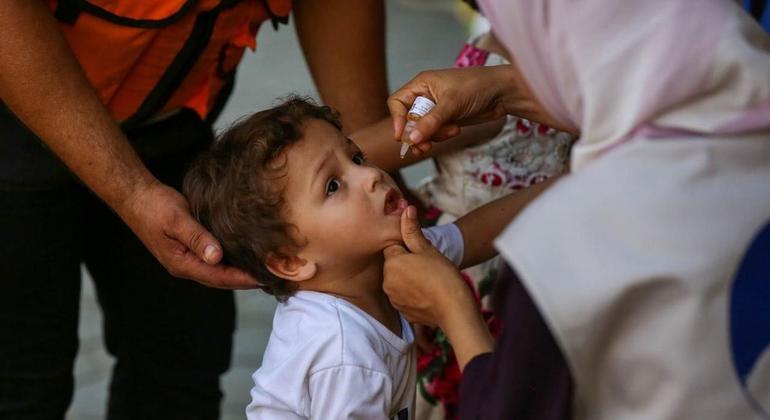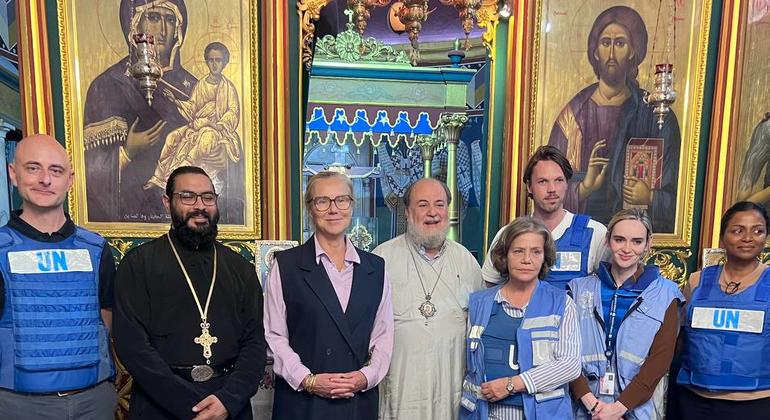
Health services for Gaza residents. Middle East: UN supports health system, provides humanitarian aid Peace and security
Amid escalating violence in the Middle East, the World Health Organization (WHO) continues to support the operation of medical facilities and helps evacuate patients in need of specialized treatment, Hanan Balkhi, WHO Regional Director for the Eastern Mediterranean, said on Monday.
Speaking from Cairo to reporters, she briefed reporters on the emergency situations in the occupied Palestinian territory and Lebanon, as well as Sudan and other hotspots in the region.
“We urge an immediate and sustainable ceasefire in the occupied Palestinian territory, Lebanon and Sudan, as well as unimpeded access for the delivery of life-saving aid,” Balkhi said.
Gaza conflict escalates
The WHO spokeswoman said the situation in the Middle East, which was already causing serious concern, had only worsened since her last briefing.
Experts are warning of widespread starvation in northern Gaza, where conditions are threatening the lives of the local population, she added.
At the same time, WHO and its partners carried out the largest medical evacuation from Gaza since the beginning of the conflict: 90 patients and 139 accompanying persons were transferred to hospitals in the United Arab Emirates (UAE) and Romania.
Over the past three weeks, WHO has organized seven missions to northern Gaza, including five to Kamal Adwan Hospital. Several other planned trips could not be carried out. Aid workers delivered medical and surgical supplies to keep the hospital open, even as bombs continued to explode near them in one case, Balkhi said.
Polio campaign success
She also noted the successful completion of the second and final round of the polio vaccination campaign for young children in Gaza, calling it a “tremendous achievement.”

She said the campaign had been a success despite the challenges, including the reduction of planned humanitarian pauses.
The Role of UNRWA
The WHO representative added that it was impossible to talk about the situation in Gaza without recognizing the indispensable role of the UN Relief and Aid Agency for Palestine Refugees (UNRWA).
“As the Director-General of the World Health Organization has emphasized, there is no substitute for UNRWA,” Balkhi said.
“I want to take this moment to recognize the dedication of UNRWA staff – health and humanitarian professionals who work tirelessly to serve their communities in unimaginable conditions. Our work and that of other humanitarian partners in the Occupied Palestinian Territory would not be possible without them,” she added.
The crisis in Lebanon
Meanwhile, according to her, the situation in Lebanon is no less alarming. For example, since 8 October 2023, WHO has documented 103 attacks on health facilities.
Bahli said 17 hospitals had already closed or were only partially functioning, while 127 primary health care centres and dispensaries in areas where fighting was ongoing – nearly 60 per cent.
“We cannot – and must not – allow this to become the norm,” the WHO regional director said.
She added that more than 5,500 health workers in Lebanon had been trained in mass casualty management and psychological first aid. WHO had also provided hospitals with 124 metric tons of medical supplies, including a three-month supply of blood transfusions and trauma kits.
According to the latest data, 561,800 people have crossed the border from Lebanon into Syria since September 23, and almost 31,000 Lebanese arrived in Iraq between September 27 and November 5, 2024. Meanwhile, UN agencies have also warned that the food situation in Lebanon will worsen.
Ceasefire and protection of civilians
Balkhi reiterated her call for the continued protection of civilians, health workers and health facilities in all countries facing emergencies.
She also called on the international community to remain mindful of the crises around the world – “from Afghanistan to Syria, Yemen, the occupied Palestinian territories, Somalia and Sudan” – and to support the WHO in providing assistance to those in need.
Forced Displaced Persons
Meanwhile, the UN Coordinator for Gaza Humanitarian and Reconstruction Commissioner Sigrid Kaag visited an UNRWA center for displaced persons in western Gaza City on Saturday. She also visited the Orthodox and Latin Catholic churches where displaced persons are sheltering.

Kaag met with families who were forced to leave their homes due to military action, becoming familiar with their needs and living conditions.
